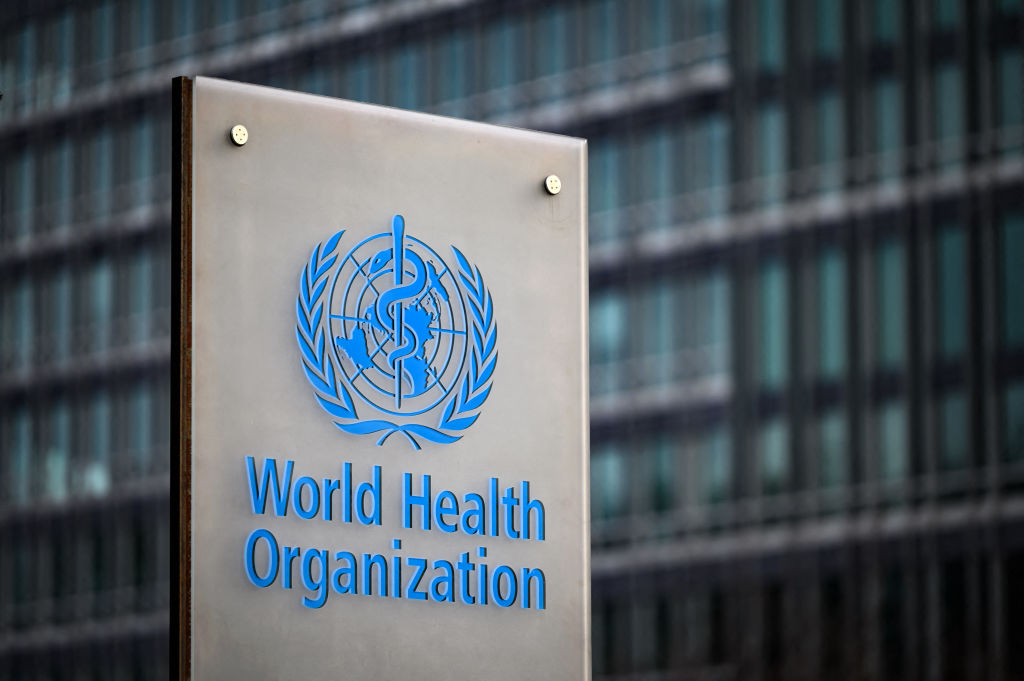COVID-19 no longer a global health emergency, WHO says


A free daily email with the biggest news stories of the day – and the best features from TheWeek.com
You are now subscribed
Your newsletter sign-up was successful
COVID-19 is no longer a global health emergency, the World Health Organization (WHO) declared Friday. The announcement comes more than three years after the emergency was first declared and after the virus killed close to 7 million people globally, Reuters reports.
"For more than a year the pandemic has been on a downward trend," WHO Director-General Tedros Adhanom Ghebreyesus said at a news conference. "This trend has allowed most countries to return to life as we knew it before COVID-19."
While it is no longer considered an emergency, the virus still exists and continues to spread. "The battle is not over. We still have weaknesses and those weaknesses that we still have in our system will be exposed by this virus or another virus," said Michael Ryan, the WHO's emergencies director. Indeed, a new COVID variant dubbed "Arcturus," of which pink eye may be a symptom, has begun circulating. In addition, many of those who were infected are suffering from long COVID, where symptoms last far longer than usual.
The Week
Escape your echo chamber. Get the facts behind the news, plus analysis from multiple perspectives.

Sign up for The Week's Free Newsletters
From our morning news briefing to a weekly Good News Newsletter, get the best of The Week delivered directly to your inbox.
From our morning news briefing to a weekly Good News Newsletter, get the best of The Week delivered directly to your inbox.
The WHO urges countries to reflect on the pandemic and the changes they can make to protect themselves in the future. "We can't forget those fire pyres. We can't forget the graves that were dug. None of us up here will forget them," said Maria Van Kerkhove, the WHO's technical lead on COVID-19. As Tedros concluded: "We must promise ourselves and our children and grandchildren that we will never make those mistakes again."
A free daily email with the biggest news stories of the day – and the best features from TheWeek.com
Devika Rao has worked as a staff writer at The Week since 2022, covering science, the environment, climate and business. She previously worked as a policy associate for a nonprofit organization advocating for environmental action from a business perspective.
-
 How Democrats are turning DOJ lemons into partisan lemonade
How Democrats are turning DOJ lemons into partisan lemonadeTODAY’S BIG QUESTION As the Trump administration continues to try — and fail — at indicting its political enemies, Democratic lawmakers have begun seizing the moment for themselves
-
 ICE’s new targets post-Minnesota retreat
ICE’s new targets post-Minnesota retreatIn the Spotlight Several cities are reportedly on ICE’s list for immigration crackdowns
-
 ‘Those rights don’t exist to protect criminals’
‘Those rights don’t exist to protect criminals’Instant Opinion Opinion, comment and editorials of the day
-
 Scientists are worried about amoebas
Scientists are worried about amoebasUnder the radar Small and very mighty
-
 A Nipah virus outbreak in India has brought back Covid-era surveillance
A Nipah virus outbreak in India has brought back Covid-era surveillanceUnder the radar The disease can spread through animals and humans
-
 Trump HHS slashes advised child vaccinations
Trump HHS slashes advised child vaccinationsSpeed Read In a widely condemned move, the CDC will now recommend that children get vaccinated against 11 communicable diseases, not 17
-
 Deaths of children under 5 have gone up for the first time this century
Deaths of children under 5 have gone up for the first time this centuryUnder the radar Poor funding is the culprit
-
 A fentanyl vaccine may be on the horizon
A fentanyl vaccine may be on the horizonUnder the radar Taking a serious jab at the opioid epidemic
-
 Health: Will Kennedy dismantle U.S. immunization policy?
Health: Will Kennedy dismantle U.S. immunization policy?Feature ‘America’s vaccine playbook is being rewritten by people who don’t believe in them’
-
 Stopping GLP-1s raises complicated questions for pregnancy
Stopping GLP-1s raises complicated questions for pregnancyThe Explainer Stopping the medication could be risky during pregnancy, but there is more to the story to be uncovered
-
 More adults are dying before the age of 65
More adults are dying before the age of 65Under the radar The phenomenon is more pronounced in Black and low-income populations
